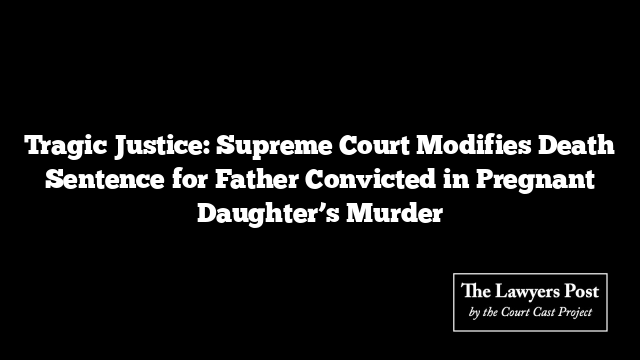In a harrowing case that underscores the dark realities of honor-related violence, the Supreme Court has upheld the conviction of a father found guilty of murdering his pregnant daughter. The court, however, commuted his death sentence to 20 years of rigorous imprisonment, citing the need for a nuanced approach to justice.
The bench, comprising Justices BR Gavai, Aravind Kumar, and KV Viswanathan, dismissed the father’s argument that the prosecution’s case was weakened by the absence of independent witnesses. They emphasized that the reliability of eyewitness accounts rendered this claim irrelevant. The court noted that while the arguments against the prosecution seemed compelling at first glance, established legal principles clarify that the lack of additional witness testimony does not undermine a solid case bolstered by credible eyewitnesses.
The grim details of the crime reveal a father driven by deep-seated caste prejudices. Angered by his daughter’s choice to marry a man from a lower caste, he concocted a deceitful plan to lure her away under the pretense of visiting her ailing mother. During this fatal outing, he took her to a remote location and brutally strangled her, killing not only her but also her unborn child.
While the trial court originally sentenced him to death under Section 302 of the IPC, the Supreme Court carefully evaluated whether this case fit the criteria for the “rarest of rare” exceptions that justify capital punishment. After examining various reports—including psychological assessments and evaluations of his background—the court concluded that the circumstances did not warrant such an extreme sentence.
The court highlighted the father’s troubled upbringing, marked by poverty and neglect, suggesting that his heinous act was not indicative of an irredeemable criminal nature. Emphasizing the potential for reform, they noted the absence of any prior criminal history within his family and argued against viewing him solely through the lens of his crime.
Ultimately, the Supreme Court opted for a balanced approach, opting for a fixed sentence of 20 years without the possibility of remission. This decision reflects a commitment to justice that acknowledges the severity of the crime while also recognizing the complexities of human behavior and the potential for rehabilitation.





